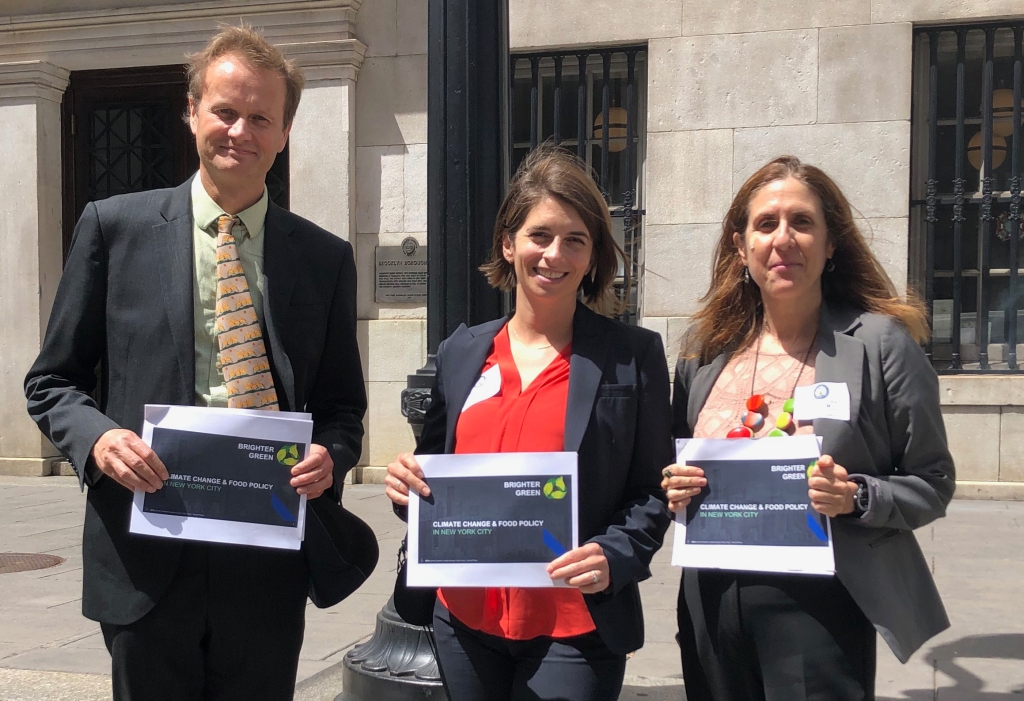As part of its ongoing work, the Vegan America Project was pleased and proud to partner with the Teachers College at Columbia University’s Tisch Food Center in the Program in Nutrition, under the leadership of Pamela Koch. Brighter Green was invited to submit a proposal as part of VAP for the students in the program to work on.

We asked the students to explore how a plant-based diet could support New York City’s climate resiliency strategies and enhance its commitments to food security and food justice. Four students—Jamila Crawford, Lesley Kroupa, Vicky Tong, and Vincent Panza—expressed an interest in the project. At the end of the semester, the students presented the results of their research in class, and, on Thursday June 13th, Lesley Kroupa and VAP coordinator Martin Rowe made a joint presentation to Brooklyn Borough President Eric Adams. Mr. Adams is running for mayor of NYC in 2021, and is a passionate advocate of a whole-food plant-based diet. A PDF of the presentation can be found below.
The task set for the students was difficult—not least given the limitations of time during which they had to make their presentations. Nonetheless, they summarized current policy regarding climate change resilience in New York City. They detailed animal agriculture’s contributions to greenhouse gas emissions. They noted vulnerabilities for flooding in certain areas of NYC—notably Hunts Point in the Bronx (through which a sizable portion of the food that New Yorkers eat is transported) and the many bridges and tunnels that could be affected by severe Sandy-like storms and rising sea levels. This required a more flexible and disaggregated food system.
They drew attention to the many public and private ventures taking place in New York City’s foodshed that not only provide climate remediation, but assist in food security, generate green jobs, and diversify food sources: such as green roofs, community gardens, and vertical farms. They also noted how reducing food waste and loss would lower mean lower carbon emissions, more food security, and, combined with amped-up composting capabilities, lower landfill-based methane emissions.

In the final part of the presentation, the students observed the limitations of NYC in setting state-wide, let alone federal agriculture policy, but showed that by legislating choice with the default being plant-based as opposed to animal food–based, it would be possible to shift the city significantly toward a more sustainable diet for all New Yorkers.